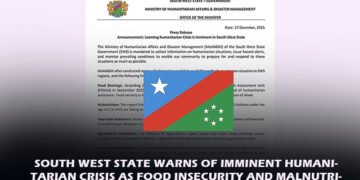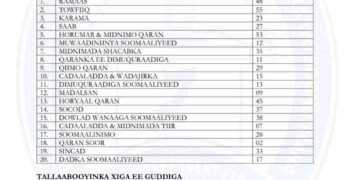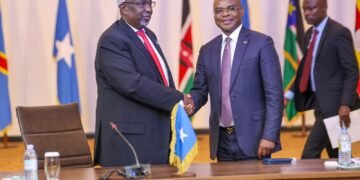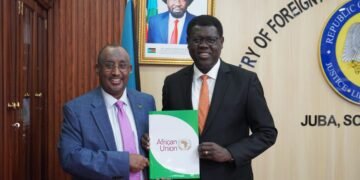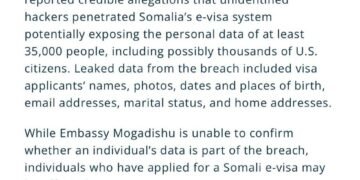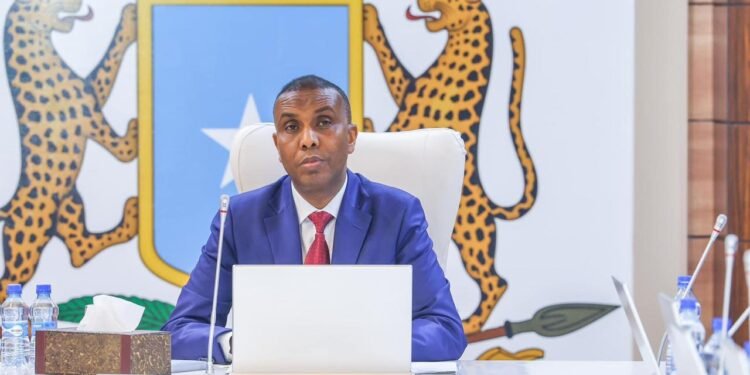Mogadishu, Somalia – The Federal Government of Somalia’s weekly cabinet meeting, chaired by Prime Minister Hamza Abdi Barre, took place today in Mogadishu, with key discussions on security, the National Transformation Plan (NTP), and the progress of the newly introduced Value Added Tax (VAT) system.
A major point of the meeting was the update provided by the Minister for Internal Security regarding the deployment of the Somali National Army (SNA) into Raskamboni, a region in Jubaland. The SNA is taking over areas previously vacated by African Union Mission in Somalia (ATMIS) forces as part of the ongoing drawdown of ATMIS troops. The move aims to ensure security and stability in the region, which has seen shifts in control as international forces withdraw.
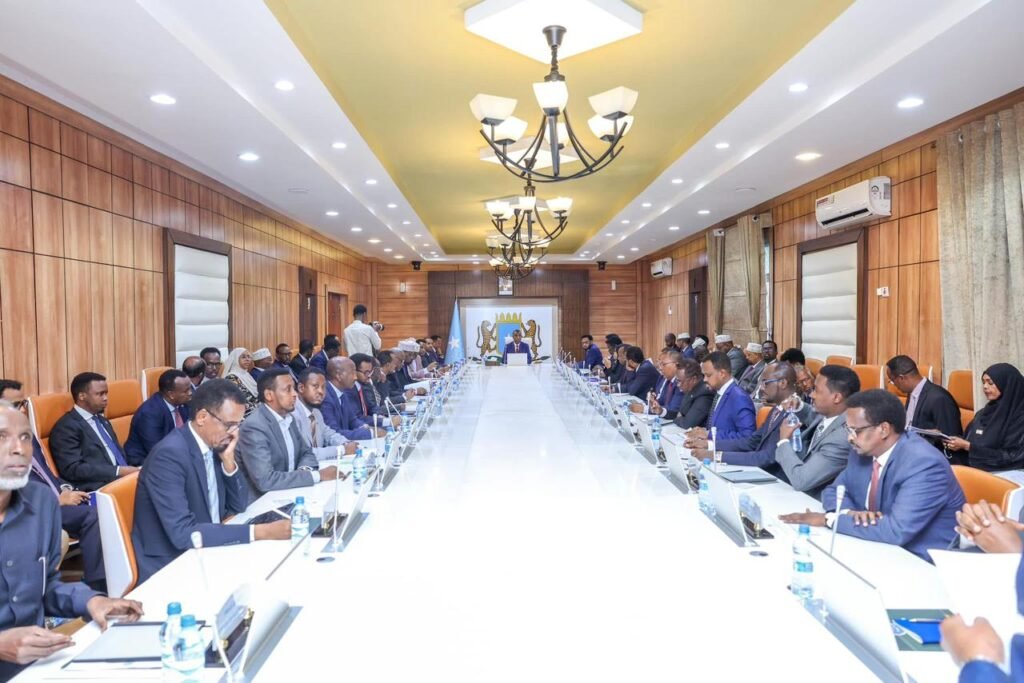
The Ministry of Planning, Investment, and Economic Development also briefed the cabinet on the status of the National Transformation Plan (NTP) 2025-2029. The NTP, which has been under preparation for almost a year, is now in its final stages and is expected to replace the current National Development Plan (NDP-9) in 2025. The NTP is designed to guide the country’s development through the next phase of economic growth, infrastructure, and governance.
Another notable agenda item was the status of the VAT system. The Minister of Finance reported significant progress since its introduction, citing the system’s growing effectiveness in generating revenue and expanding Somalia’s formal economy.
Interestingly, no follow-up questions were raised by other cabinet members during the meeting. Prime Minister Hamza Abdi Barre concluded the session, marking the end of what was a productive yet brief cabinet meeting.
This meeting follows the recent deployment of SNA forces into Jubaland, particularly to the Raskamboni area, a move that has sparked some political debate. Critics argue that the deployment is politically motivated, aimed at countering the influence of Jubaland’s President Ahmed Madobe. Nonetheless, the government maintains that the deployment is necessary to secure the region and fill the security gap left by ATMIS.
As the Federal government continues to strengthen its control over strategic regions, it faces both internal and external scrutiny regarding its military and political strategies in the south.



